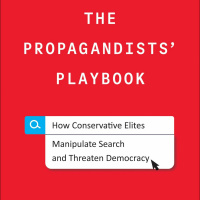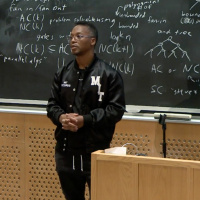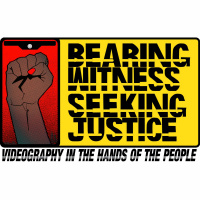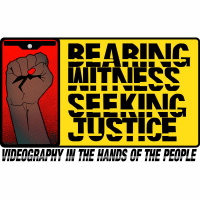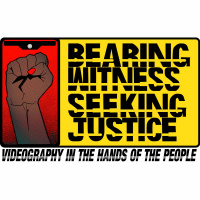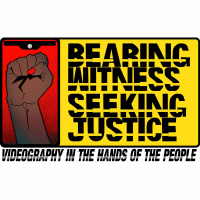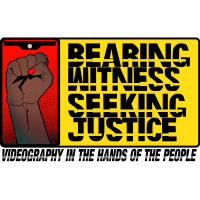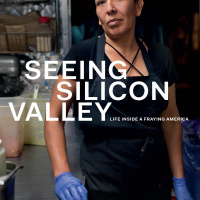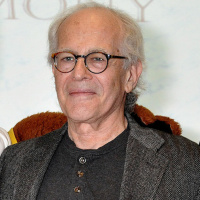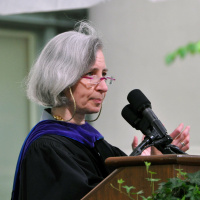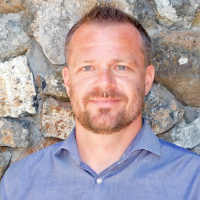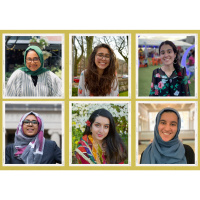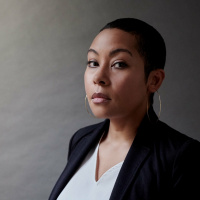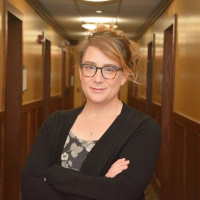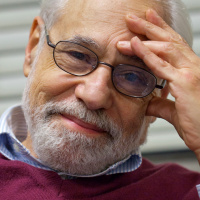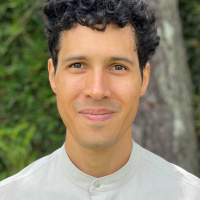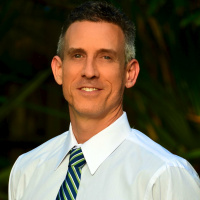Synopsis
MIT Comparative Media Studies/Writing offers an innovative academic program that applies critical analysis, collaborative research, and design across a variety of media arts, forms, and practices.We develop thinkers who understand the dynamics of media change and can apply their insights to contemporary problems. We cultivate practitioners and artists who can work in multiple forms of contemporary media. Our students and research help shape the future by engaging with media industries and the arts as critical and visionary partners at a time of rapid transformation.
Episodes
-
Bernard Geoghegan, “Learning to Code: From Information Theory to French Theory”
09/04/2023 Duration: 01h18minHow and why, in the latter half of the twentieth century, did informatic theories of “code” developed around cybernetics and information theory take root in research settings as varied as Palo Alto family therapy, Parisian semiotics, and new-fangled cultural theories ascendant at US liberal arts colleges? Drawing on his recently published book “Code: From Information Theory to French Theory,” and primary sources from the MIT archives, this talk explores how far-flung technocratic exercises in Asian colonies and MIT’s Research Laboratory of Electronics (RLE) inspired these varied and diverse audiences in a common dream of “learning to code.” The result is a new history of the ambitions behind the rise of “theory” in the US humanities, and the obscure ties of that endeavor to Progressive Era technocracy, US foundations, and the growing prestige of technology and engineering in 20th century life. Bernard Dionysius Geoghegan is a Reader in the History and Theory of Digital Media at King’s College London. An ove
-
Francesca Bolla Tripodi, “The Propagandists’ Playbook”
28/02/2023 Duration: 52minThe Propagandists’ Playbook: How Conservative Elites Manipulate Search and Threaten Democracy peels back the layers of the right-wing media manipulation machine to reveal why its strategies are so effective and pervasive, while also humanizing the people whose worldviews and media practices conservatism embodies. Based on interviews and ethnographic observations of two Republican groups over the course of the 2018 Virginia gubernatorial race-including the author’s firsthand experience of the 2017 Unite the Right rally, the book considers how Google algorithms, YouTube playlists, pundits, and politicians can manipulate audiences, reaffirm beliefs, and expose audiences to more extremist ideas, blurring the lines between reality and fiction. Francesca Bolla Tripodi is an assistant professor at the School of Information and Library Science at University of North Carolina, Chapel Hill, and a a research affiliate at the Data & Society Research Institute.
-
Lupe Fiasco presents “Rap Theory & Practice: an Introduction”
05/12/2022 Duration: 01h29minAn exploration into the underlying fundamental functions, structures, and principles of rap. Open to the public, the talk was hosted at MIT on November 30, 2022. Wasalu Jaco, professionally known as Lupe Fiasco, is a Chicago-born, Grammy award-winning American rapper, record producer, entrepreneur, and community advocate. Rising to fame in 2006, following the success of his debut album Food & Liquor, Lupe has released eight acclaimed studio albums, his latest being Drill Music In Zion, released in June 2022. His efforts to propagate conscious material garnered recognition as a Henry Crown Fellow, and he is a recipient of an MLK Visiting Professorship at MIT for the 2022/2023 academic year.
-
The Whole World Is Watching How 1968 Helps Us Frame The Present
06/10/2022 Duration: 01h10minProfessor Heather Hendershot's opening plenary from the "Bearing Witness, Seeking Justice" conference, with initial remarks by Dean Agustín Rayo and Tracie Jones, Assistant Dean for Diversity, Equity, and Inclusion. Hendershot is Professor of Comparative Media Studies at MIT. She studies television news, conservative media, political movements, and American film and television history. Her 2022 book is "When the News Broke: Chicago 1968 and the Polarizing of America", available from the University of Chicago Press: https://press.uchicago.edu/ucp/books/book/chicago/W/bo183630531.html
-
The Long & Ambiguous (pre)history Of Audiovisual In The Black Experience
06/10/2022 Duration: 57minFull title: “Between freedom & oppression: The long & ambiguous (pre)history of audiovisual in the Black experience” Featuring Chakanetsa Mavhunga, Ekene Mekwunye, Jepchumba, and Russel Hlongwane. Chakanetsa Mavhunga is Professor of Science, Technology, and Society at the Massachusetts Institute of Technology. Mavhunga explores international history, theory, and practice of science, technology, innovation, and entrepreneurship, with a focus on Africa. Ekene Mekwunye is adjunct faculty at the School of Media and Communication, Pan-Atlantic University, Lagos, Nigeria, and an award-winning filmmaker, television producer-director, and photographer. Jepchumba is Founder and Creative Director of African Digital Art, a collective and creative space where digital artists seek inspiration, showcase their work, and connect with emerging artists. Russel Hlongwane is a cultural producer, curator of the arts, and creative industries consultant based in Durban, South Africa. His work bridges themes of heritage, modern
-
The Forensic Citizen Learning From The Past, Preparing For The Future
06/10/2022 Duration: 01h06minWilliam Uricchio is Professor of Comparative Media Studies at the Massachusetts Institute of Technology and founder of the MIT Open Documentary Lab, which brings together storytellers, technologists, and scholars to experiment with new documentary.
-
Resilient Witnessing In The Face Of Human Rights Abuses, Distrust, And Deepfakes
06/10/2022 Duration: 01h03minSam Gregory is Director of Programs, Strategy & Innovation at WITNESS, which helps people use video and technology to protect human rights; studies relationship between emergent technologies, disinformation, media manipulation, & authoritarianism.
-
Moving Images In Absentia Courtroom Looking In The Age Of Hyper - Mediation
05/10/2022 Duration: 57minKelli Moore is an Assistant Professor of Media, Culture, and Communication at New York University who examines how media and technology produce legal and political knowledge to inform public debates on visual literacy, race, and other issues.
-
Mary Beth Meehan and Fred Turner, “Seeing Silicon Valley”
05/05/2022 Duration: 01h20minVideo also available at https://cms.mit.edu/video-seeing-silicon-valley-mary-beth-meehan-fred-turner. Acclaimed photographer Mary Beth Meehan and Silicon Valley historian and media scholar Fred Turner discuss their recently published and award-winning book Seeing Silicon Valley: Life inside a Fraying America, a collaborative exploration of the culture of Silicon Valley — not the culture of Elon Musk and Mark Zuckerberg that we see in the press, but the lives of the men and women who inhabit the Valley and make it work. If Silicon Valley is building the world’s future, Meehan and Turner argue, then we must learn to see through the tech industry’s marketing campaigns. We need to see the kind of society the tech industry is actually creating, in its own back yard. Fred Turner is the Harry and Norman Chandler Professor of Communication at Stanford University. Before coming to Stanford, he taught Communication at Harvard’s John F. Kennedy School of Government and MIT’s Sloan School of Management. He also worked
-
Charles North - The William Corbett Poetry Series 01
21/04/2022 Duration: 38minCharles North has published twelve books of poems, three books of critical prose, and collaborations with artists and other poets. With James Schuyler, he edited the poet/painter anthologies Broadway and Broadway 2. His New and Selected Poems What It Is Like (2011) headed NPR’s Best Poetry Books of the Year, and he has received a Foundation for Contemporary Arts Grant, two National Endowment for the Arts Fellowships, four Fund for Poetry Awards, and a Poets Foundation Award. He lives with his wife, the painter Paula North, in New York City.
-
Saving the News: Why the Constitution Calls for Government Action to Preserve Freedom of Speech
15/04/2022 Duration: 01h20minIn her 2021 book Saving the News: Why the Constitution Calls for Government Action to Preserve Freedom of Speech, our guest Martha Minow “outlines an array of reforms, including a new fairness doctrine, regulating digital platforms as public utilities, using antitrust authority to regulate the media, policing fraud, and more robust funding of public media. As she stresses, such reforms are not merely plausible ideas; they are the kinds of initiatives needed if the First Amendment guarantee of freedom of the press continues to hold meaning in the twenty-first century.” Martha Minow has taught at Harvard Law School, where she also served as Dean, since 1981. In addition to Saving the News, she is author of When Should Law Forgive? (2019), In Brown’s Wake: Legacies of America’s Constitutional Landmark (2010), among many other books and articles. She is an expert in human rights and advocacy for members of racial and religious minorities and for women, children, and persons with disabilities, she also writes and
-
Oscar Winberg, "Archie Bunker Goes to Washington"
11/04/2022 Duration: 01h24minThis talk reconsiders the role of television entertainment in American political life in the 1970s and beyond. Focusing on the situation comedy All in the Family (CBS, 1971-1979), the talk looks at a turn to politics in entertainment and a turn to entertainment in politics. In the 1970s, fictive characters, including Archie Bunker (played by Carroll O’Connor) and Edith Bunker (Jean Stapleton) of All in the Family but also Hawkeye Pierce (played by Alan Alda) of MAS*H and Mary Richards (played by Mary Tyler Moore) of The Mary Tyler Moore Show, became political icons. Produced by Norman Lear, All in the Family is recognized as a watershed moment in television history. And yet, Oscar Winberg argues, the show did not just change television, it transformed American politics. Recognizing the popularity of television, politicians learned how to use (and abuse) television entertainment to win votes, to fundraise, to promote their agenda, and to push for legislation. Television entertainment in the 1970s thereby remad
-
Jens Pohlmann, "Platform Regulation and the Digital Public Sphere"
01/04/2022 Duration: 01h19minIn this talk, Jens Pohlmann compares the discourse about the regulation of social media platforms and its effect on freedom of expression in Germany and the United States. Drawing on computational methods, he analyzes the discussion about a German anti-hate speech law called the Network Enforcement Act (NetzDG) and the debate about a reform of Section 230 of the Communications Decency Act in the United States in different media environments (IT-blogs, newspapers, social media). Ultimately, he considers the extent to which cultural, historical, and political differences between these two liberal democracies inform the present transatlantic debate about the restriction of content online and the regulation of social media platforms, as well as potential impacts on the evolving digital public sphere. Jens Pohlmann is a Research Associate at the Centre for Media, Communication & Information Research (ZeMKI) at the University of Bremen. He received his Ph.D. from Stanford University in 2017 and focuses his resear
-
“Our Ancestors Did Not Breathe This Air”, Six Muslim Women in STEM
31/03/2022 Duration: 42minThese six poets met as undergrads at MIT, brought together by the many things they shared: the challenges of being women in STEM, their lifelong pursuits of becoming better Muslims, and the exhaustion of drinking from the academic firehose. Through sharing their poetry, they want to foster empathy and mutual reciprocity for those who don’t often see someone like them within literary spaces. The poems they share at this reading focus on family, identity, and homeland—where they come from and how that shaped who they are now. The evening’s readers were introduced by Indran Amirthanayagam, who produced a “world record” in 2020 publishing three poetry collections written in three different languages. He writes in English, Spanish, French, Portuguese and Haitian Creole. He has published twenty two poetry books, including Isleño (R.I.L. Editores), Blue Window (translated by Jennifer Rathbun) (Diálogos Books), Ten Thousand Steps Against the Tyrant (BroadstoneBooks.com), The Migrant States, Coconuts on Mars, The Ele
-
Racquel Gates, “Reintroducing Melvin Van Peebles”
18/03/2022 Duration: 01h22minIn this talk, Racquel Gates presents her experience working as consulting producer on the Criterion release of Melvin Van Peebles: Essential Films. A legendary filmmaker whose unique personality is just as well-known as his body of work, Van Peebles made an indelible impact on both Black film and independent cinema. How, then, to present new insights on Van Peebles in a way that built on viewers’ existing familiarity with the filmmaker and his work while avoiding cliches and hagiography? In “Reintroducing Melvin Melvin Van Peebles,” Gates considers the history of her own research on Van Peebles’s films, and details the pleasures — and challenges — of trying to create a bridge between the worlds of academic film studies and more public facing consumer film culture. Racquel Gates is an Associate Professor of Film and Media at Columbia University. Her research focuses on blackness and popular culture, with special attention to discourses of taste and quality. She is the author of Double Negative: The Black Ima
-
Katherine Jewell, "Party City: WMBR, Institutional Change, and Democratic Media"
11/03/2022 Duration: 01h20minCollege radio has long been known as the weird, wacky signals on the left of the FM dial offering music that would never be mainstream. But this wasn’t always the case—and moreover, even at stations exemplifying musical adventurousness and the community potential of college signals, institutional constraints loomed. In this talk, Katherine Jewell delves into the history of WMBR at MIT from the 1960s to the 1980s to explore how this station, with a license held by an independent non-profit corporation, built a meaningful community institution despite transformations within the university, its student body and organizations, as well as regulatory changes regarding noncommercial radio and the music industry’s shifting business model. DJs debated and embraced the democratic obligations of their signal, particularly their commitment to diversity of sound. But achieving these lofty goals often proved complicated given the need to construct a program that appealed to and served many audiences in a fluctuating radio
-
David Thorburn: William Corbett Poetry Series
03/03/2022 Duration: 44minDavid Thorburn has been a teacher of literature for 57 years, 46 of them at MIT where he is Professor of Literature and Comparative Media and Director Emeritus of the MIT Communications Forum. Generations of MIT undergraduates have taken his lecture course, “The Film Experience,” which now reaches an international audience on YouTube. He was born in Manhattan and grew up in an old farmhouse in Randolph, New Jersey. He’s written a book on Joseph Conrad and many essays and reviews on literature and media. Knots is his first book of poetry.
-
Jorge Caraballo, “How to Use Audio Storytelling to Cultivate a Community and Keep it Engaged”
18/02/2022 Duration: 01h23minPodcasts are in a golden age and are being used to effectively communicate new ideas, tell compelling stories, and build highly participative communities. This presentation will explore the power of audio storytelling to connect individuals in engaged networks of collaboration. Jorge Caraballo (’22 Harvard Nieman Fellow) will draw from experience as the former Growth Editor at Radio Ambulante –Latin America’s most popular documentary podcast– and will highlight different ways in which storytelling can be the starting point of new collective identities. Jorge Caraballo is a journalist and a 2022 Harvard Nieman fellow. Before that, he worked for four years as the Growth Editor at Radio Ambulante –the most popular documentary podcast in Spanish, and the only one in that language distributed by NPR. There he led online and offline engagement initiatives to grow the community around the podcast. He holds a master’s degree in Media Innovation at Northeastern University. He’s a Fulbright Scholar and a Google News
-
Eric Freedman, "Non-Binary Binaries and Unreal MetaHumans"
11/02/2022 Duration: 01h19minVideo game engines have promoted a new cultural economy for software production and have provided a common architecture for digital content creation across what were once distinct media verticals—film, television, video games and other immersive and interactive media forms that can leverage real-time 3D visualization. Game engines are the building blocks for efficient real-time visualization, and they signal quite forcefully the colonizing influence of programming. Video game engines are powering our visual futures, and engine developers that include Unity Technologies and Epic Games are rapidly iterating their products to tackle new markets, where data and visuality continue to converge. This analysis, which draws from software studies and studies of visual culture, examines a tool that is fairly new to the Epic Games arsenal—the in-development MetaHuman Creator that is part of Epic’s proprietary Unreal Engine. The MetaHuman Creator is a cloud-streamed application that draws from a library of real scans of p
-
Lynn Nottage’s "By the Way, Meet Vera Stark" and the Making of Black Women’s Film History
04/02/2022 Duration: 01h19minLynn Nottage’s 2011 satirical play By the Way, Meet Vera Stark stages the life and legacy of the fictional Vera Stark, a Black maid and struggling actress during Hollywood’s golden age. Nottage, a two-time Pulitzer prize-winning playwright and screenwriter, was inspired in part by the career of African American actress, singer, and dancer Theresa Harris. A play about Black women’s cinematic representation and social erasure, Nottage’s fabrication of film history extends beyond the staged plot to also include a digital archive documenting Vera’s celebrity and career. In this talk, Samantha N. Sheppard examines how Nottage’s play and paratexts produce a speculative fiction and archive about Black women’s media histories, staging what she calls a phantom cinema—an amalgam of real and imagined film histories that haunt, trouble, and work with and against cinema histories to creatively illuminate archival gaps in visual culture and the public imagination. Samantha N. Sheppard is an associate professor of cinema


